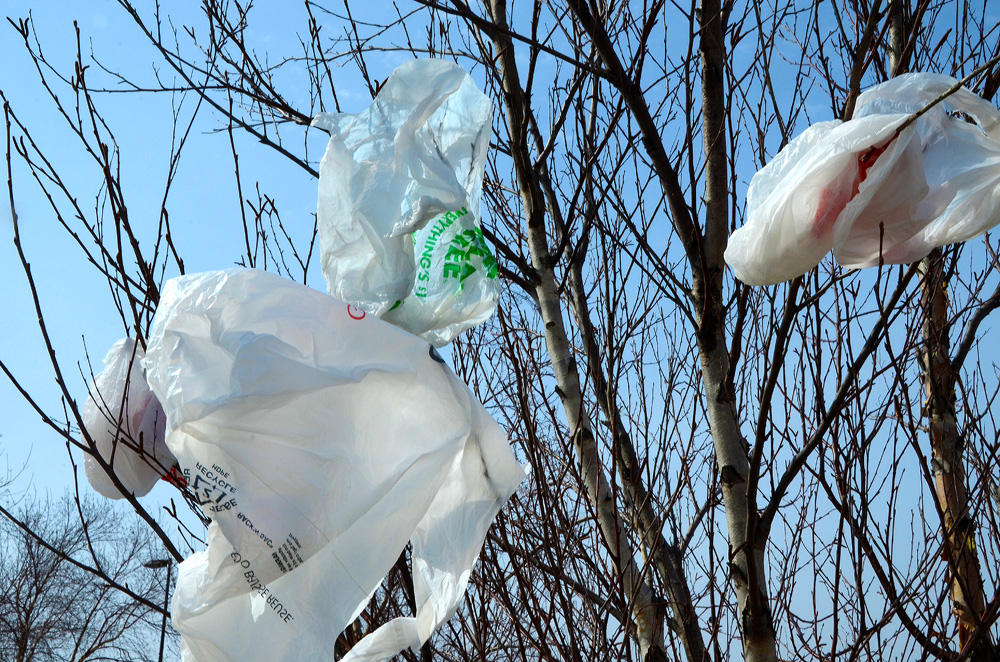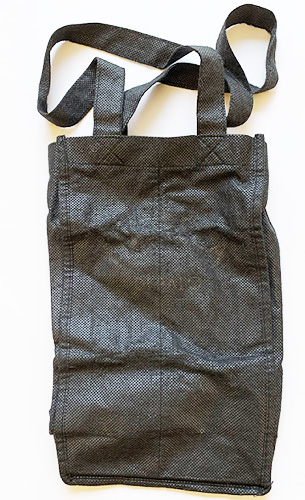Plastic shopping bags are convenient to use because they are lightweight and inexpensive, and yet they are also a major source of plastic pollution. People worldwide use an estimated 500 billion to 1 trillion single-use plastic bags each year. Although plastic bags are recyclable, very few actually are because the cost of recycling is greater than the cost of producing new bags. As a result, most plastic bags end up in landfills or as litter in the environment. Paper bags and reusable bags have been suggested as alternatives for replacing plastic bags. While some question whether these replacement products are better for the environment, studies show that the answer is yes, but with a few caveats. See also: Plastic waste pollution; Polymer; Recycling technology

Replacing single-use plastic bags with single-use paper bags is not an environmentally friendly alternative. Paper-bag manufacturing consumes more water and energy than plastic-bag production, resulting in increased carbon-dioxide (greenhouse-gas) emissions. And, because wood is a main source of fibers for paper production, greater paper use could lead to the loss of stored carbon and an increase in global warming through deforestation. In addition, paper bags are heavier than plastic bags, so paper bags have higher shipping costs and cause greater carbon-dioxide emissions during transport. If paper bags are reused more than three times, they do have a lower environmental impact than plastic bags. Paper bags are also recyclable, biodegradable, and compostable. However, to steer consumers away from single-use paper bags, municipalities, states, and countries are charging fees (taxes) ranging from five to twenty cents per bag. See also: Biodegradation; Carbon dioxide; Deforestation; Fiber crops; Global warming; Greenhouse effect; Paper

Reusable shopping bags are available in various materials, including recycled polyester and cotton, hemp, or jute cloth. Cotton, hemp, and jute are renewable materials but require a great deal of water for cultivation. Reusable polyester bags that are made from recycled plastic bottles have the lowest carbon footprint. Regardless of the materials, reusables are only environmentally friendly if they are used many, many times. The numbers vary, but compared to single-use plastic bags, cotton bags need to be used more than 130 times to start yielding environmental benefits, whereas recycled polyester bags start yielding environmental benefits after about 20 to 40 uses. Leaving your reusable bags at home and buying new ones is an environmental no-no, as is allowing your reusable bags to become litter. At the end of their useful life, reusable bags should be recycled or repurposed to best protect the environment. See also: Cotton; Hemp; Jute; Polyester resins; Renewable resource





